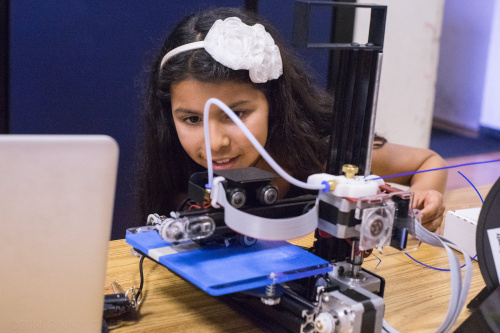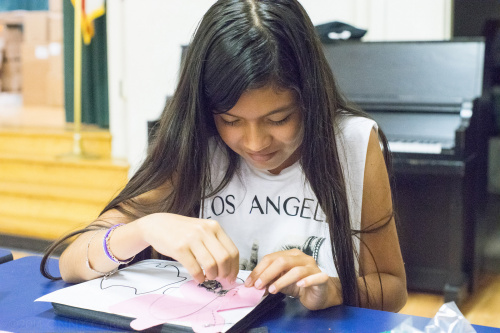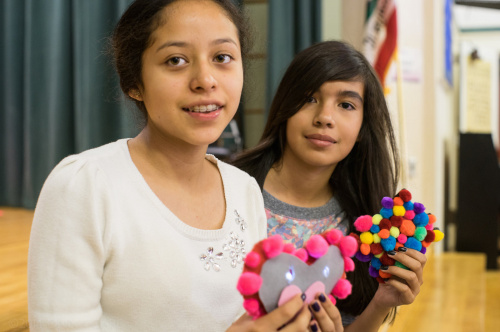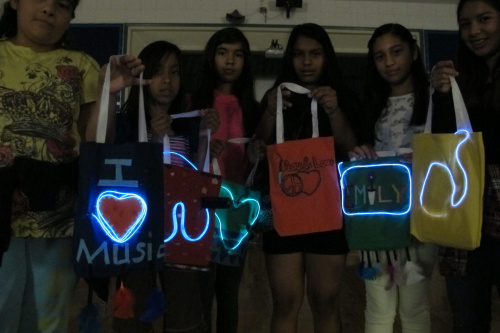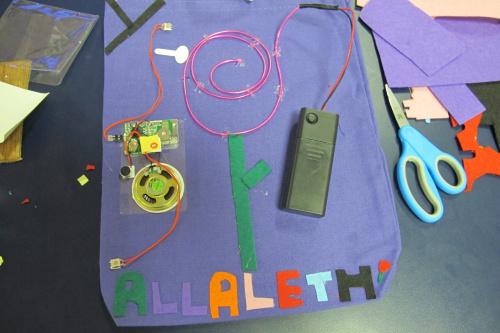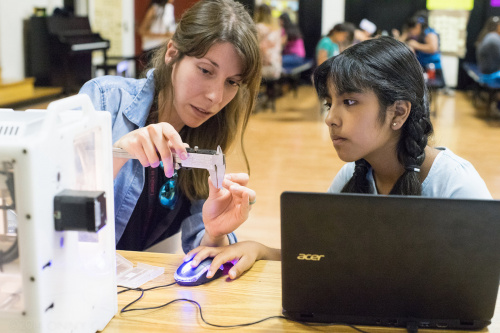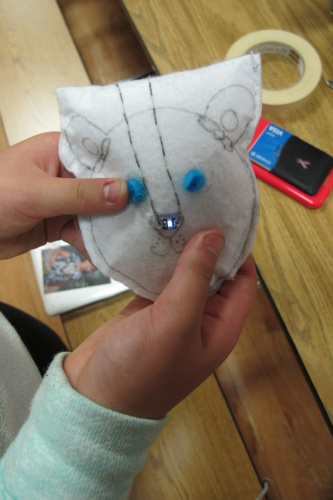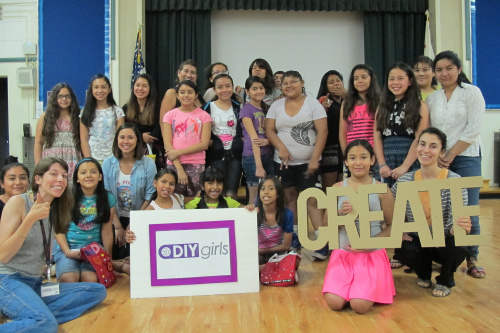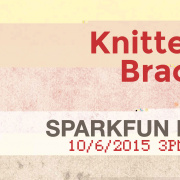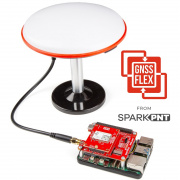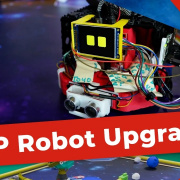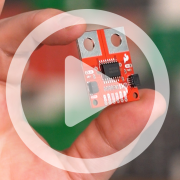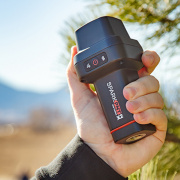DIY Girls Summer Camp 2015
We partnered with a great non-profit to offer hands-on tech experiences for girls!
Earlier this year, we partnered with DIY Girls, an LA non-profit that provides hands-on tech activities for girls. We were excited to see how the camp turned out, and Curriculum Director Sylvia Aguinaga was kind enough to share some more information about the program, as well as images and stories from this year's event!
Can you tell us a little bit about yourself and what you do?
I’m Sylvia Aguinaga, Director of Curriculum for DIY Girls, a non-profit that provides hands-on tech experiences for girls in Los Angeles. I develop project content and facilitate the making process at workshops. I’m currently working on a Masters degree in Library and Information Science from San Jose State University.
What was the inspiration for the DIY Girls Summer Camp?
After running our first after-school program in 2012-2013, girls asked us, “What’s next?” and, “What are we doing this summer as part of DIY Girls?” We quickly realized that they wanted to continue learning and making projects. The majority of the girls we serve don’t attend summer camps and really want something to do during the summer. We designed our summer camp to allow the girls to explore more advanced projects and work on tools and machines they normally don’t have access to.
What inspired your project list?
This year, we wanted to explore two STEM topics in depth -- Fashion Technology and Product Design. Fashion technology is a discipline of engineering that our girls really enjoy. Fashion is a great way for a middle schooler to express herself. So, it makes a lot of sense that when we introduce ways to integrate technology, all eyes widen. Our Product Design week was inspired by our new machines! After receiving a generous donation from Water Buffalo Club, we invested in a Bukito 3D printer by Deezmaker and a CNC router by Othermill. The Product Design week provided girls the opportunity to create their very own invention using real machinery.
Many of the girls we serve in our after-school program eagerly await our summer camp, so we make sure to include topics that they love. We also find it critical to explore concepts and materials they have never worked with. It’s good to keep projects somewhat familiar and increasingly challenging in order to keep them engaged. For girls who are brand new to our program, we are mindful of how accessible each project is, as well as the potential each project has to adapt to every girl's unique personality. We want girls to express themselves and learn technical skills at the same time. My job is to find projects that allow them to do just that.
Which project seemed to engage the girls the most?
The LilyTiny Plush Monster and the EL Wire Bag were the most engaging. Girls thoughtfully designed their creatures and carefully mapped out their sewn circuit. It was great to see the girls’ use of the different LED capabilities. There was plenty of debugging that session. The EL Wire Bag was a major test of persistence. Our girls worked hard stripping the EL wire before learning to solder for the first time. It was amazing to see one girl lock down a technique and show her peers how it was done.
Which was their favorite project to complete?
I ask this question a lot at the end of our programs. It’s extremely helpful in crafting future curriculum. This year, answers were all over the place. Many of the girls enjoyed a little bit of everything. However, most loved was the light-up tutu. We scaffolded our projects to allow for greater control toward the end of the camp. The light-up tutu was the project finale. Girls felt more comfortable with sewing, manipulating material, and creating circuits. The camp definitely ended on a high note of confidence.
What do you hope will happen with the summer camp in the future?
We hope that girls will eventually become mentors in our summer camp as they get older. They will be great facilitators and will bring their own camp experiences to younger girls. We also plan to partner with other institutions such as universities and museums that offer advanced summer programs we can send groups of girls to. The next step after our summer camp for a girl is to experience learning at other places to help them with transition to higher education.
What would be your advice for someone hoping to start a similar organization?
Our advice would be to learn from others (like us) that have spent lots of time planning camps for girls. We are working on making our curriculum available for free to anyone that wants to run a camp for girls. The curriculum guide will be available soon so anyone interested should start planning their 2016 DIY camp now!
